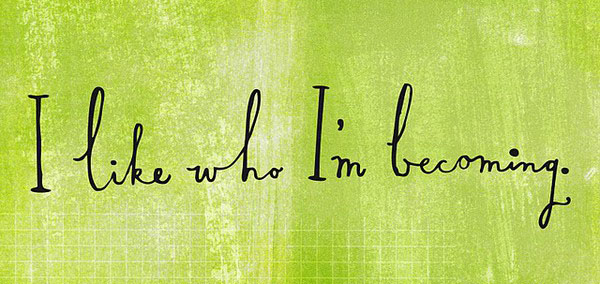Today I’m sharing a few more reflections from Joan Chittister’s book, The Gift of Years. If you’ve missed my previous posts from the book, you can catch up here:
“The Second Blooming” (which has links to earlier posts)
I rarely write about religion. If you’ve been reading my blog for a long time, you might be thinking, “Whaaaaaat? You write about religion all the time.” But you’d be wrong. I frequently write about faith, spirituality, church, theology, liturgical arts, and prayer. But those things aren’t the same as religion. Maybe they are aspects of religion. Or maybe religion is an aspect of some of those things. Since I’m reflecting on Chittister’s book, I’ll start with her definition(s) of religion:
Religion is not a topic, not a course, not simply a body of beliefs. It is a process of becoming…. The fact is that religion is not one thing. It is a multi-layered phenomenon that, if successful, can bring people to the height of whatever spiritual mountain they climb.

I like the way she weaves religion and spirituality together in that last sentence. My own personal “brand” of spirituality draws from a religion—Orthodox Christianity—but also from other sources.
Chittister has some interesting things to say about what religion can mean in our lives at different ages: “Religion has various functions at various stages of life. It is a guidepost from early life through to the end.”
And then she goes on to describe those functions and stages:
In early life, in youth, the function of religion is the formation of conscience. Religion sets the standards that mark the path.
In middle age, religion becomes a social guide. It is a measure of our relationship with others. It creates the standards that measure the quality of the soul as well as the behaviors of a person.
Finally, as we grow older, when we begin that last stage of life, it is clear that behaviors and failures are not the stuff of religion much anymore. Now, the ecstasy of life and the surrender to the Mystery become the last of the revelations of religion.
Those three short descriptions are expanded in her chapter on religion in the book, of course. I’m just sharing the bare bones of it. And although I enjoyed the whole chapter, at this stage of my life I do better with bullets. Three bullets to highlight a chapter works well for me. I think what I love most about Chittister’s discussion on religion is what she says about this final stage. The stage where I find myself (hopefully) in a “process of becoming”:
The older generation everywhere, it seems, knows what younger people do not. They know that in the end it is not denominationalism, it is the spiritual life, it is faith, it is soul that wins out.
I’ve never been the kind of Christian who likes to argue with people about my faith. Or try to convert them to my religious choice or spiritual lifestyle. When I was in college, I rebelled against the mandates of Campus Crusade for Christ, which taught (or seemed to teach, in my memory) that you weren’t really a Christian unless you were out evangelizing—leading people to Christ. Giving your testimony. Most people I know who convert to Christianity (or any religion) do so because they see something they want in the lives of its followers. Maybe they see love, or joy, or kindness, or peace. I don’t always have these attributes in my life, but as I grow older, I hope that I continue the process of becoming. I’ll close with a favorite quote from the author, E. E. Cummings:
“It takes courage to grow up and turn out to be who you really are.”